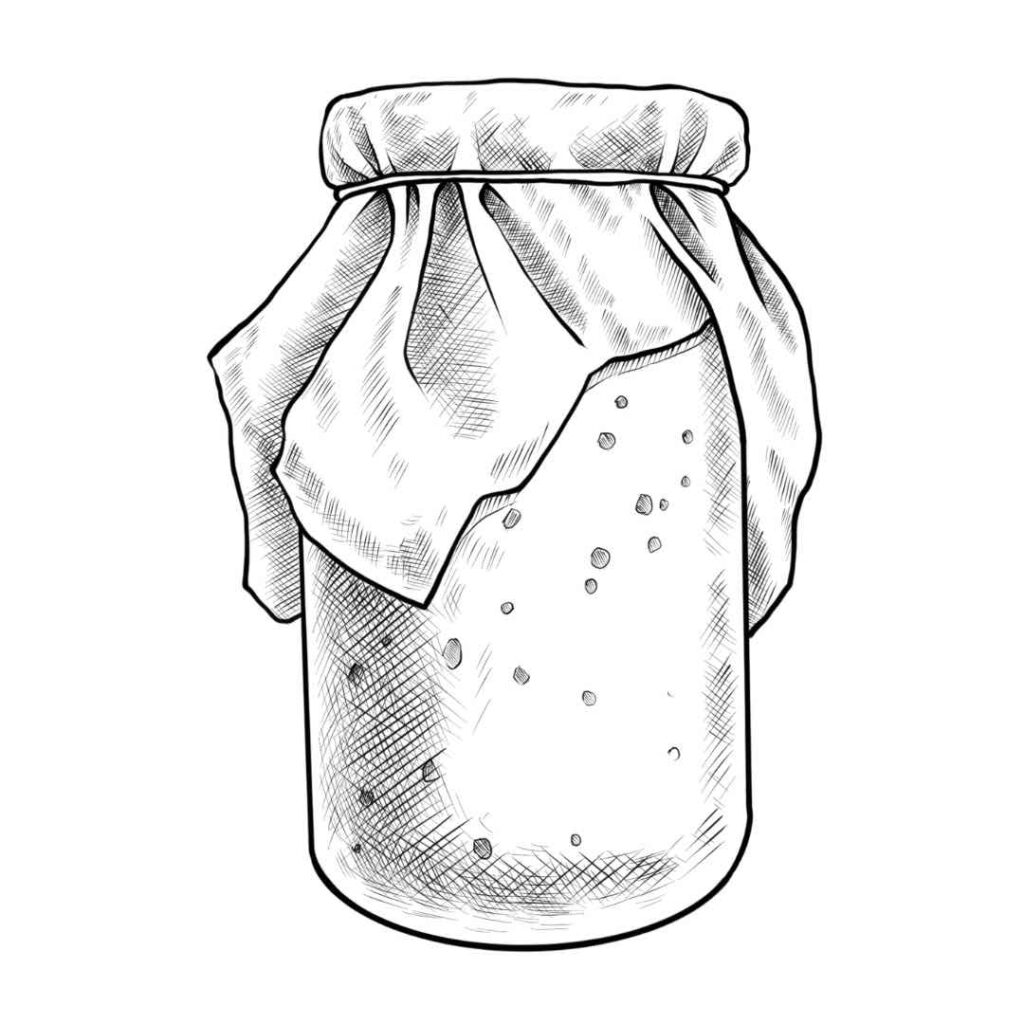Risks Involved in Dairy Fermentation: What to Watch Out For
Fermenting dairy products like yogurt, kefir, and cheese at home can be highly rewarding, but it’s crucial to be aware of the potential risks and how to mitigate them. Here are some specific bacteria to look out for and the signs that indicate their presence.
Harmful Bacteria in Dairy Fermentation
Pathogenic Bacteria:
- Listeria monocytogenes: This bacterium can cause listeriosis, a serious infection. It is particularly dangerous for pregnant women, newborns, elderly people, and those with weakened immune systems.
- Signs: Contaminated dairy products may not show obvious signs, but improper sanitation and handling can increase the risk. Listeria can grow at refrigerator temperatures, so proper pasteurization and hygiene are essential.
- Escherichia coli (E. coli): Certain strains can cause severe foodborne illness.
- Signs: While contamination may not always be visible, symptoms of infection include severe stomach cramps, diarrhea (often bloody), and vomiting.
- Salmonella: This bacterium can cause salmonellosis, leading to gastrointestinal illness.
- Signs: Contamination may not be visible, but symptoms include diarrhea, fever, and abdominal cramps.
- Staphylococcus aureus: This bacterium can produce toxins that cause food poisoning.
- Signs: Symptoms of contamination include nausea, vomiting, stomach cramps, and diarrhea. The food itself may not show signs of contamination.
- Listeria monocytogenes: This bacterium can cause listeriosis, a serious infection. It is particularly dangerous for pregnant women, newborns, elderly people, and those with weakened immune systems.
Spoilage Bacteria:
- Pseudomonas spp.: These bacteria can cause spoilage in dairy products, leading to off-flavors and textures.
- Signs: Spoiled dairy products may have a sour, rancid smell, and an unusual color or texture.
- Pseudomonas spp.: These bacteria can cause spoilage in dairy products, leading to off-flavors and textures.
Signs of Contamination
When fermenting dairy products, it is essential to recognize the signs of contamination to ensure food safety:
- Unpleasant Odors: Fermented dairy should have a pleasantly tangy smell. If you detect a foul, putrid, or unusually strong odor, discard the product.
- Mold Growth: Any visible mold (green, black, pink, or other colors) on the surface of dairy products indicates contamination and the product should be discarded immediately.
- Off-Colors: Normal fermented dairy products are typically white or creamy. Any discoloration, such as yellow, green, or pink, suggests spoilage.
- Texture Changes: Fermented dairy should have a smooth, consistent texture. If it becomes excessively slimy, stringy, or has an unusual consistency, it is best to err on the side of caution and discard it.
- Gas Production: While some gas production is normal in certain fermentations (like kefir), excessive bubbling or frothing in products that should not have it may indicate unwanted microbial activity.
Preventing Contamination
- Sanitize Equipment: Ensure all equipment, containers, and utensils are thoroughly cleaned and sanitized before use.
- Use Fresh Ingredients: Start with fresh, high-quality milk and live cultures. Avoid using milk that is close to its expiration date.
- Control Temperature: Maintain appropriate temperatures during fermentation to favor the growth of beneficial bacteria and inhibit pathogens.
- Heating Milk: Heat milk to 180°F (82°C) and then cool to 110°F (43°C) before adding starter cultures.
- Incubation: Keep the mixture at a stable temperature suitable for fermentation (around 110°F or 43°C for yogurt) to promote the growth of beneficial bacteria.
- Monitor Fermentation Time: Follow recommended fermentation times closely. Over-fermentation can lead to undesirable microbial growth.
- Storage: Store fermented products in the refrigerator to slow down microbial activity and prolong shelf life.
Conclusion
By understanding the risks involved in dairy fermentation and taking appropriate precautions, you can enjoy the benefits of homemade fermented dairy products safely. Always prioritize cleanliness, monitor for signs of contamination, and adhere to proper fermentation practices to minimize risks and ensure your homemade dairy products are both delicious and safe. Happy fermenting!

Recipe Categories


